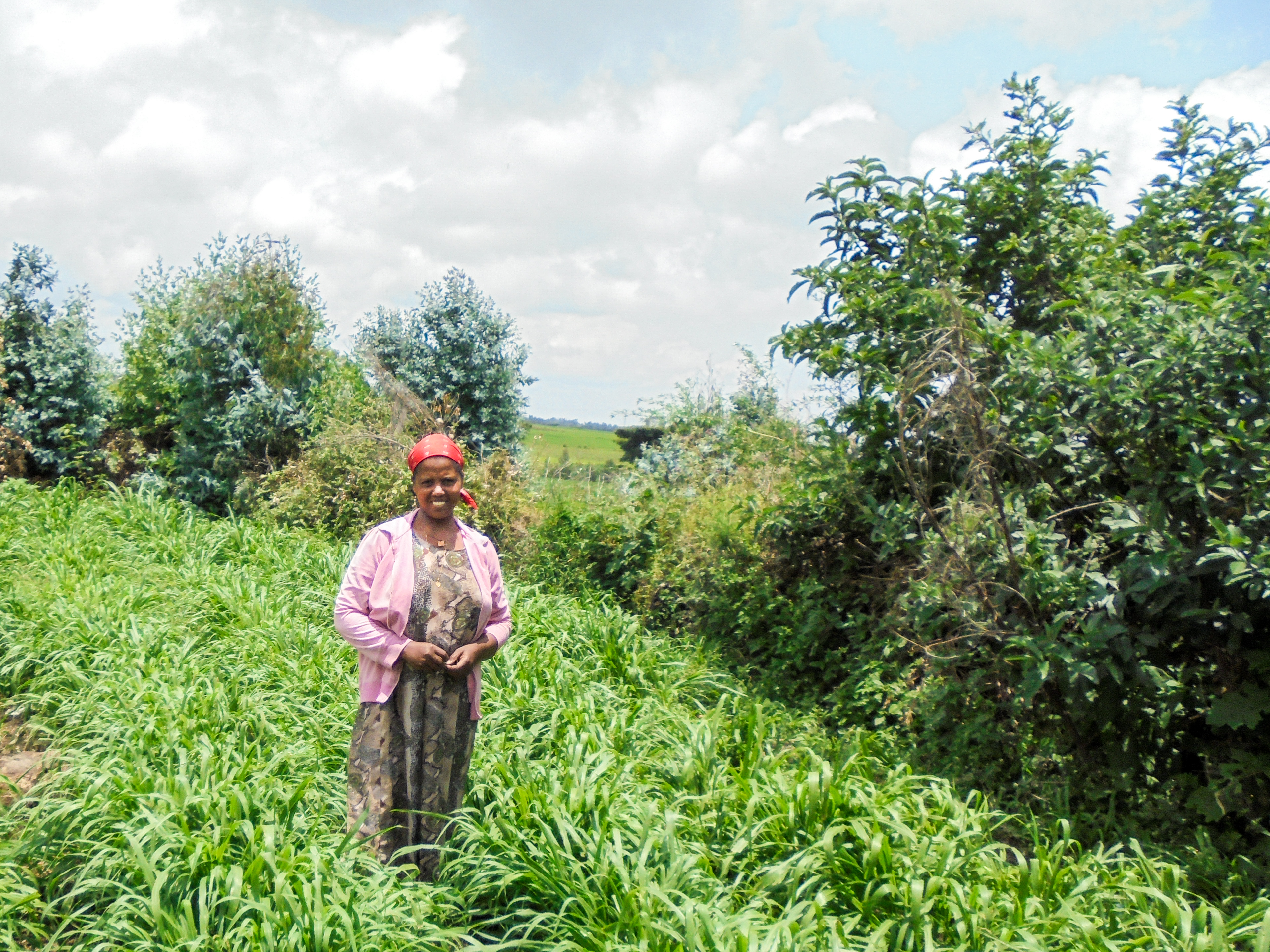
With support from the U.S. Department of Agriculture (USDA), the ACDI/VOCA-implemented Feed Enhancement for Ethiopian Development Project – Phase II (FEED II) increases the incomes of livestock and poultry producers through improved access to, and use of, consistent, affordable, high-quality feeds that support animal productivity and efficiency.
FEED II targets smallholder farmers for its technical training and in-kind grants. Since 2013, the project has trained 27,065 farmers, 30 percent (8,143) of whom are women, on a sustainable forage development system, livestock nutrition, feeding management, and record keeping. The project also provides farmers with forage seeds and vegetative planting materials to improve productivity through enhanced animal nutrition and feeding management.
To recognize the achievements of women in livestock and poultry production and to inspire others, the project awarded 116 women with equipment (a milk can, small agriculture tools, cages, feed, a record book, a waterer and feeder, a scale and trough) based on their activities in the project’s four target regions. Many farmers, particularly women, have benefited from FEED II-provided training and support. Helen Tesfaye is one of them.

Helen, aged 36, lives in Gora Sillingo kebele, Tiyo woreda, a few kilometers from Asella in central Ethiopia. Helen received training from FEED II on forage production, livestock nutrition, feeding management, and record keeping. She participated in experience-sharing visits to other farms and received forage seeds and planting materials from the project. FEED II recently recognized her achievements.
Helen confirms that FEED II support was key to her success.
She says, “It was difficult for me to engage in agricultural activities. But, after participat[ing] in the experience-sharing visit organized by FEED II, I became so excited to do business in the livestock sector. ACDI/VOCA opened my eyes to see a business opportunity in my neighborhood, not outside my homestead farm.”
Woman Farmer Puts FEED II-Provided Techniques into Practice, to Great Success
She now raises different types of forage: alfalfa, vetch, oat, desho, and elephant grass. With improved forage and management practices such as mixing legumes and grasses, chopping feed, and using clean feed and water troughs, she increased the amount of milk she collects daily from 4 to 10 liters/cow. Currently, she gets 20 liters of milk/day total and delivers 4 liters/day to her cooperative for which she receives 1,440 birr/month. She also delivers 12 liters/day to direct customers for 4,800 birr/month. She grows alfalfa to feed her chickens, which has helped their egg-laying performance.
Today, Helen has started a new poultry farm with 110 chickens.
She says that “[By] engaging in this business, I now have money in my pocket to cover tuition and transport fee[s] for our children. Now my children are enrolled in a better private school and take a taxi to school.”
Helen is self-reliant and committed to bringing positive change to her life. She is a role model for other women in her community.








